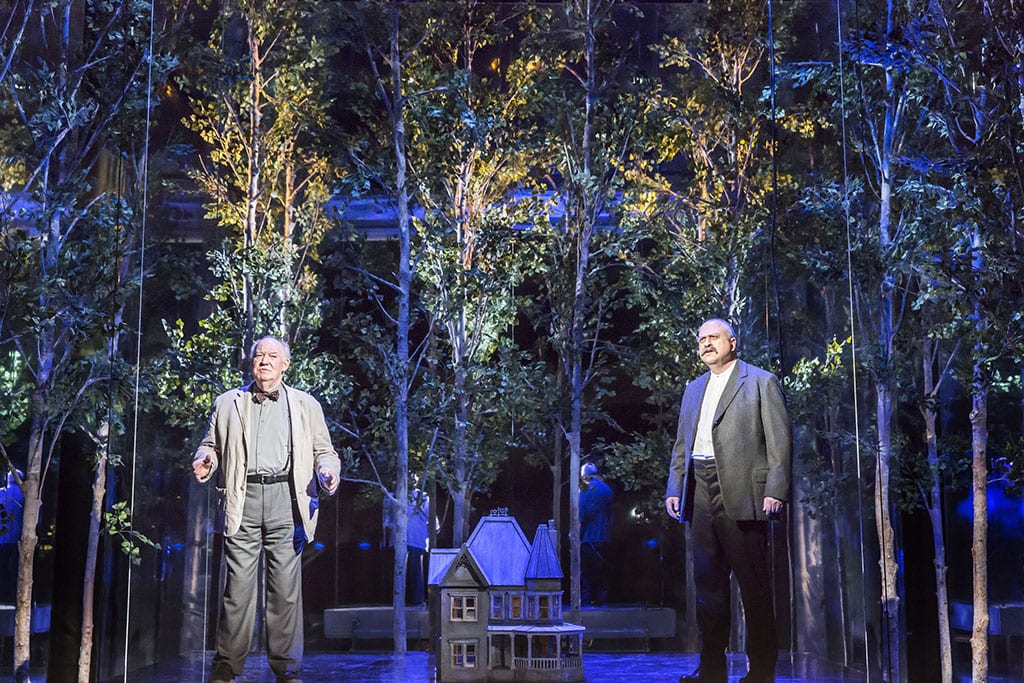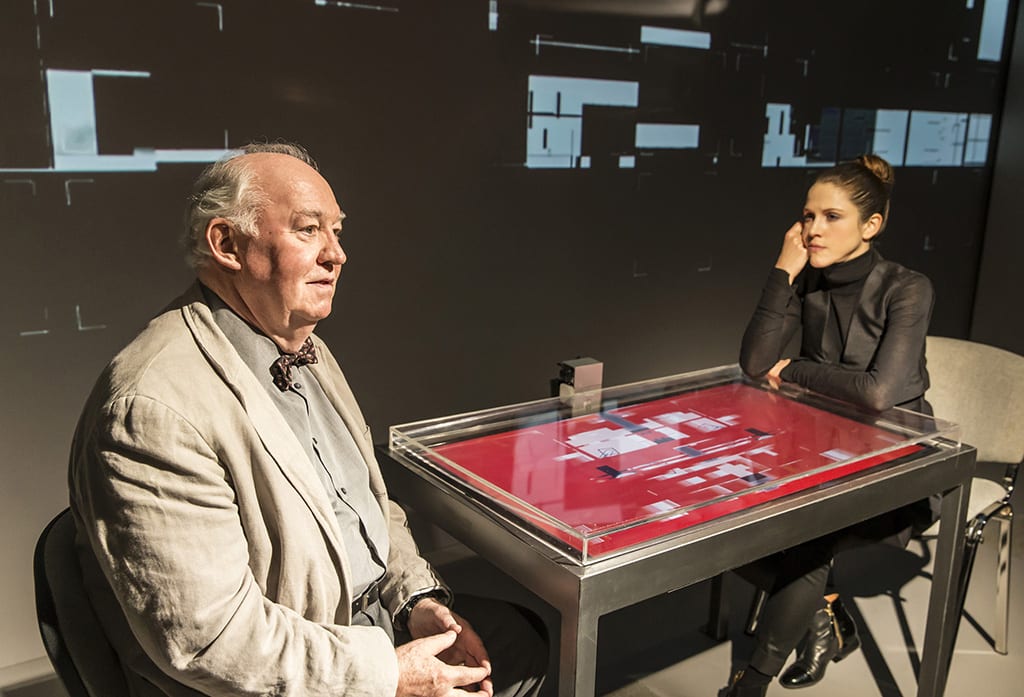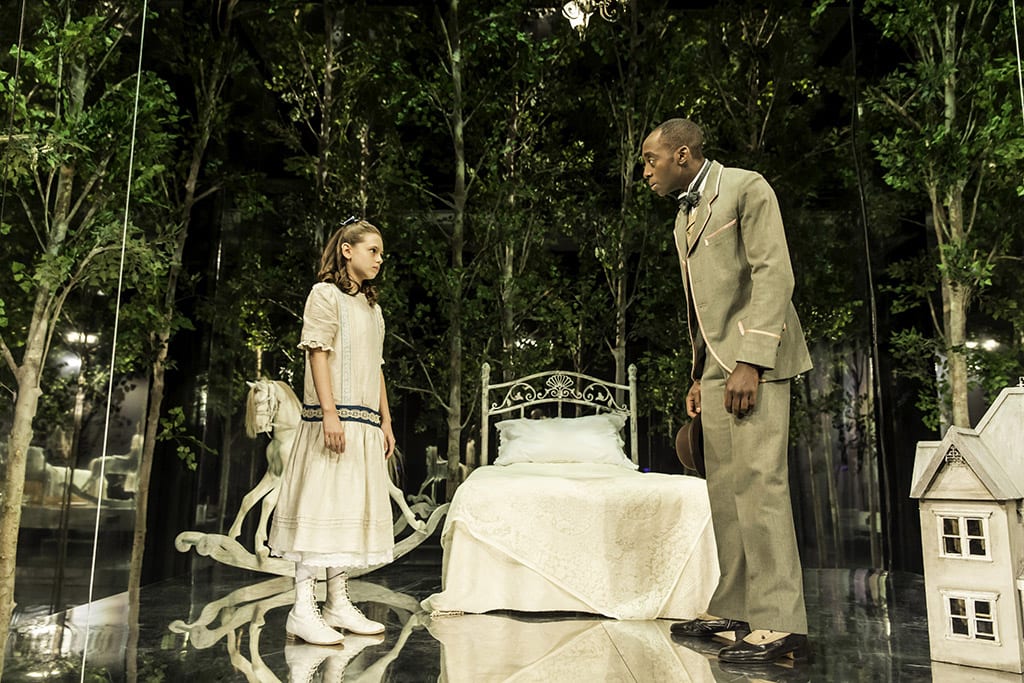In the world of The Nether, the internet has expanded into a virtual reality, where people can create and inhabit their own worlds; Mr Sims, a businessman, has created a realm in the Nether called The Hideaway, designed for those with certain desires to explore and satisfy their longings in a (theoretically) safe way. However, the play questions whether this is truly ethical; is it better for a paedophile like Sims to be able to indulge his desires in a virtual world, harming no-one, or is he legitimising those desires and fostering a culture of acceptance in the real world?
The play consists of three different scenarios: two men being questioned about their activities in the Nether, and their activities themselves being played out. Rather than running in chronological order, we constantly switch between the three, meaning that the audience is required to piece together their conversations to understand both how this world functions, and what has happened to the specific characters around whom the play revolves.
The set itself is stripped back for the real-world interactions, while the landscape of the Nether is full of props and visual effects, reminding us of the inadequacy of the real when compared to the world that Sims has created; the design of this play consistently highlights the artificiality of the Nether while portraying it as a utopia compared to the real world, raising the question of what is real, and whether that matters. The acting was of an incredibly high standard throughout – eleven-year-old Jaime Adler gave a performance of astonishing depth as Iris, and the adult cast was equally strong, in roles which were often exceptionally emotionally demanding, while making space for humour without detracting from the gravity of the subject matter.
This is a play which asks questions, but does not presume to answer them; its format, showing us conversations between people both in and out of their virtual characters, encourages us to see the many sides to all of these issues which are raised by the creation of such technology. With the rapid expansion of the internet, and the development of devices such as Oculus Rift, the problems raised by this play are only becoming more and more pertinent: should we be free in our imagination, or is there always a line? How can personal freedom and anonymity online match up with an increase in potentially damaging material? And how can this material be censored or policed? Although we’re not there yet, the world of The Nether is not far off, and these are questions that will need serious consideration, and Haley succeeds in her quest to draw them to our attention and make us think, long and hard, about the answers.




